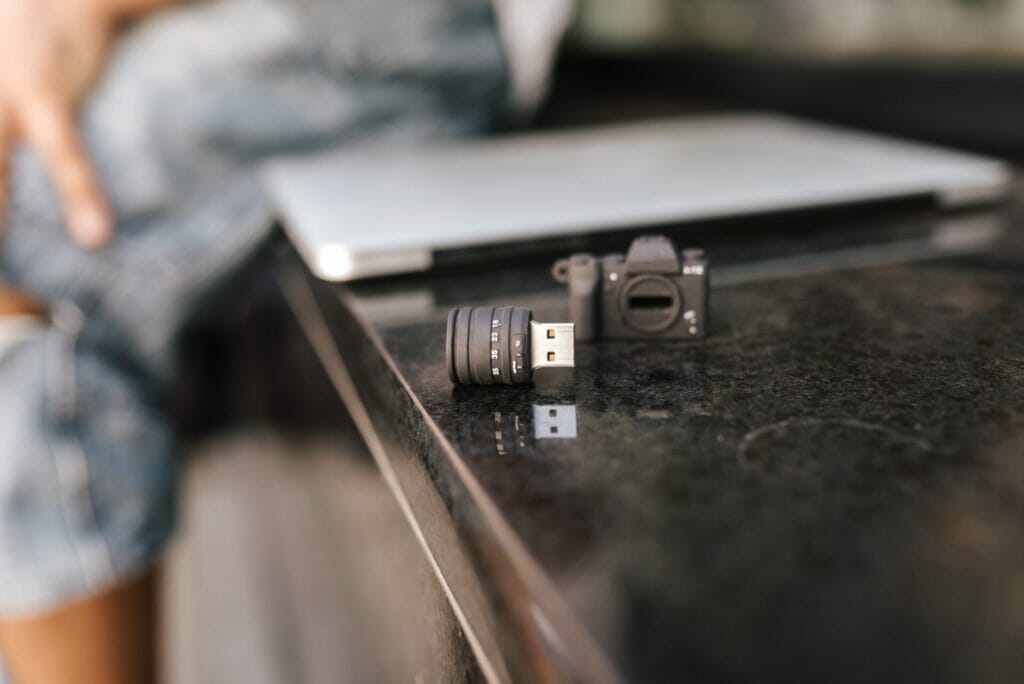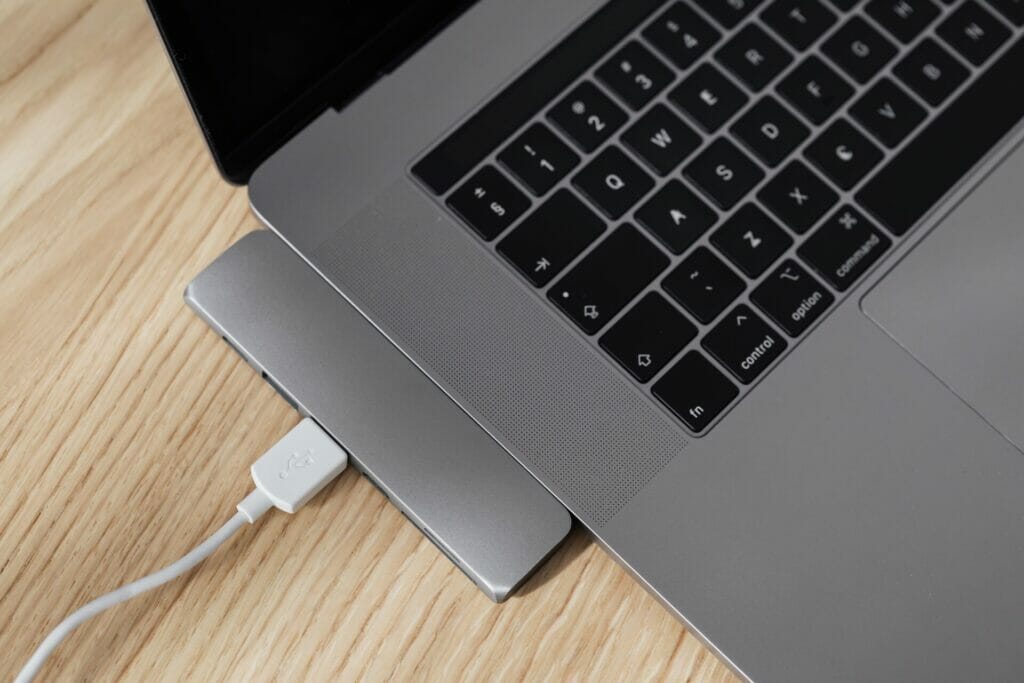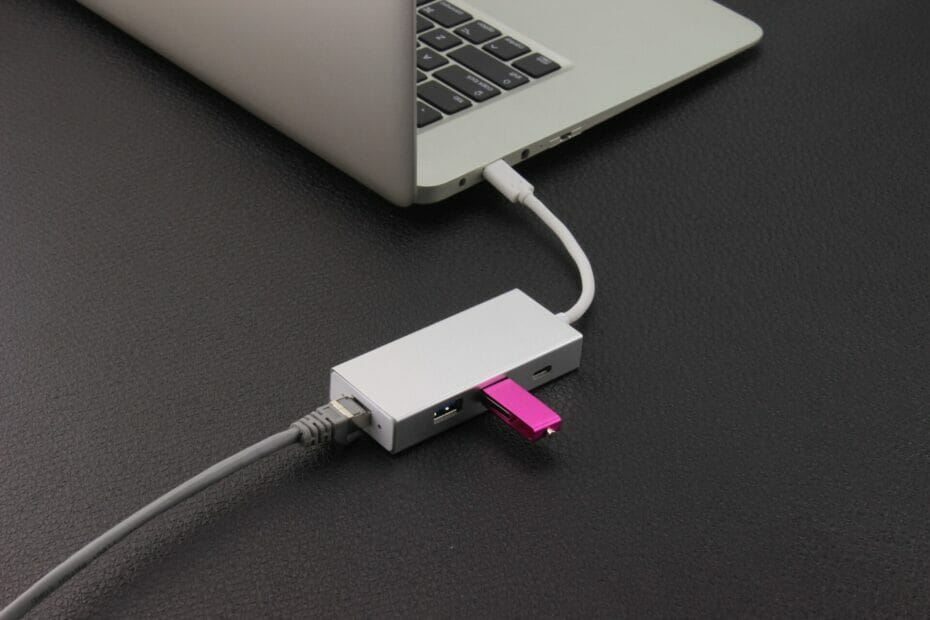PCI Vs USB Wi-Fi
Both PCI and USB WiFi cards are great choices for most users. However, there are certain situations where one card may perform better than another. PCIe WiFi offers faster speeds than USB WiFi. USB WiFi uses power through a micro USB port, it consumes less power than PCI WiFi. Both PCI and USB WiFi support WPA/WPA2 encryption. However, USB WiFi does not support WEP encryption.
Overall, both PCI and USB WiFi are excellent choices for most users. Each comes with its set of pros & cons which are described below.
PCI Wi-Fi Card

There are several types of PCI WiFi cards available. These include 802.11a/b/g/n cards, Bluetooth cards, and even Ethernet cards. A PCI WiFi card connects to a PCIe slot on a computer’s mainboard.
Installation
Installing a PCIe WiFi card is a bit tedious. First, you’ll need to open up your computer case. Then you’ll need to find an empty PCI Express slot you can use and insert the card correctly.
Finally, you’ll need to tighten the retention screw to the case so the card doesn’t fall out when the case is placed upright.
Before attempting this, be sure you’ve discharged any static electricity that may damage your system. Most, if not all, new cards are plug-and-play, so there shouldn’t be any issues installing them.
Slot and PCIe Lane Requirements
This PCI Express WiFi card is great if you want to save space and still get high performance out of your wireless network. You’ll only require a single x1 slot to install this card, making it ideal for small spaces.
You may not realize it, but most WiFi cards today actually have two slots that are power slot and a data slot. However, the data slot is usually hidden behind a panel or cover. This means that you won’t be able to access it unless you remove the panel or cover.
With this PCI Express WiFi card, you’ll never have to worry about accessing the data slot. Instead, you’ll simply plug the card directly into any available PCIe slot. There’s no need to open up the case or remove panels or covers.
Performance
WiFi 6 cards are fast. You’ll notice that they perform very quickly compared to older models. However, there are still differences between the various models. Some of the newer ones may not perform quite as fast as others.
For example, the newest PCIe WiFi 6 cards have a max transfer rate of 2.4 Gpbs at 5 GHz frequency and 574 Mbps at 2.4 GHz frequency. Older models typically only had 1 Gbps max transfer rates at 5 GHz frequency.
USB Wi-Fi Card

A USB WiFi adapter is a great choice if you’re looking for a faster WiFi connection on your desktop. These devices plug right into any computer’s USB port and provide wireless internet access. You have to sacrifice speed or performance with a USB WiFi adapter.
Performance
To find the right USB WiFi adapter for your needs, you’ll want to look for one that supports the latest Wi-Fi network standard, 802.11ac. This means that it should support the MIMO technology used in the newest generation of wireless networks.
802.11ac uses multiple antenna extensions to transmit data across the airwaves. These extra antennas enable faster transfer rates and improved reliability. As long as your USB WiFi adapter supports 802.11ac, you should be able to enjoy max transfer speeds.
You can also get speeds of up to 866Mbps (108MB/s) for the 5Ghz band and 400Mbps (50MB/s) for the 2Ghz band.
Installation
You’ll find that installing a USB WiFi card is extremely simple. Plug the device into the USB port and let the driver install itself automatically. After installation, you should be able to connect to wireless networks without issue.
What’s The Difference Between PCI And USB WI-FI?
Physical Differences
PCIe WiFi cards are faster than USB WiFi cards because they support the latest WiFi 6 standard. However, if you already have a USB WiFi card, there isn’t really any reason to upgrade to a PCIe WiFi card unless you plan on using it for high-speed transfers.
USB WiFi cards are slower than PCIe WiFi cards because they only support the older WiFi 5 standard. You should definitely consider upgrading to a PCIe WiFi card if you currently have a USB WiFi card.
Ease of Use
A USB WiFi card is easier to install than a PCIe WiFi card. You don’t need to open up the PC case and you don’t need to worry about PCIe lanes. Just plug it in the USB slot and you’re done!
Performance
For starters, PCIe Wi-Fi adapters tend to be larger and heavier than USB Wi-Fi adaptors. However, once you start using them, you’ll find that their bulk actually works in their favor.
USB Wi-Fi adapters may not perform quite as well as PCIe Wi-Fi adapters. But, they are still very capable.
Benchmarks
We’ve already established that a typical Wifi adapter, whether WiFi PCIe card connection or USB is no match for a wired internet connection. However, there is still a difference between the two types of adapters. A PCIe card is faster than a USB adapter, but not by much.
What Should You Purchase?
A PCIe Wi-Fi adapter is generally faster than a USB Wi-Fi adaptor, but it isn’t as flexible. A PCIe Wi-Fi adapter usually costs more than a USB Wi-fi adapter, but it may cost less depending on where you shop.
If you are comfortable tinkering with a computer, then you should consider getting a PCIe Wi-Fi adaptor. However, if you don’t mind a little bit of trouble setting up your device, then you’ll probably be happier with a USB Wi-fi adaptor.
FAQ
Does Built-In Wi-Fi Perform Better Than USB Wi-Fi?
Most modern Wi-Fi-enabled motherboards are equipped with decent Wi-Fi receivers and antennas. As a result, you’re unlikely to notice a huge performance difference between the built-ins and a USB Wi-Fi adapter.
Are USB Wi-fi Antenna Adapters Better?
USB wireless adapters with antennas are generally no faster than regular wi-fi adapters without antennas. However, there are times when using an antenna makes a noticeable difference.
Are USB Wi-fi Adapters Worth The Money?
USB wireless adapters are great if you only need basic connectivity to connect to the internet. However, if you need high-speed data transfer rates, then you should look at using a PCI Express wireless card instead.
A USB Wi-Fi adapter is a cheap option for connecting to a network. You can buy them at any store that sells computer accessories.
However, if you plan on using your device for anything else besides browsing the web, then you may want to invest in a PCI Express card instead of a USB Wi-Fi Adapter. PCI Express cards are typically more expensive than USB Wi-Fi adapters, but they provide much faster speeds.
For those who need the fastest WiFi connections, PCI Express cards are definitely worth the extra cash.
Are USB Wi-fi Adapters Sufficient For Gaming?
For anything other than casual online gameplay, I definitely recommend using an ethernet cable instead of a USB wi-fi adapter.
Ethernet cables provide a stable connection that doesn’t suffer from lag spikes and jitter. You’ll experience less latency and ping, and you won’t have to worry about any sort of interference.
What Is The Difference Between A Wi-fi Dongle And A Wi-fi Adapter?
- A “WiFi dongle” is a USB wireless network adapter.
- A WiFi adapter can be either USB or PCI Express.
Is A Wi-fi Adapter Better Than An Ethernet Cable?
Ethernet has good speed and performance. For instance, if you’re trying to stream video or play games online, you’ll probably want to use a wired connection. Otherwise, you risk losing quality due to lag caused by the distance between your computer and the server.
However, if you only need to transfer files or browse the web, then a wi-fi adapter might work fine. There are plenty of options available today, including ones that support 802.11ac technology.
